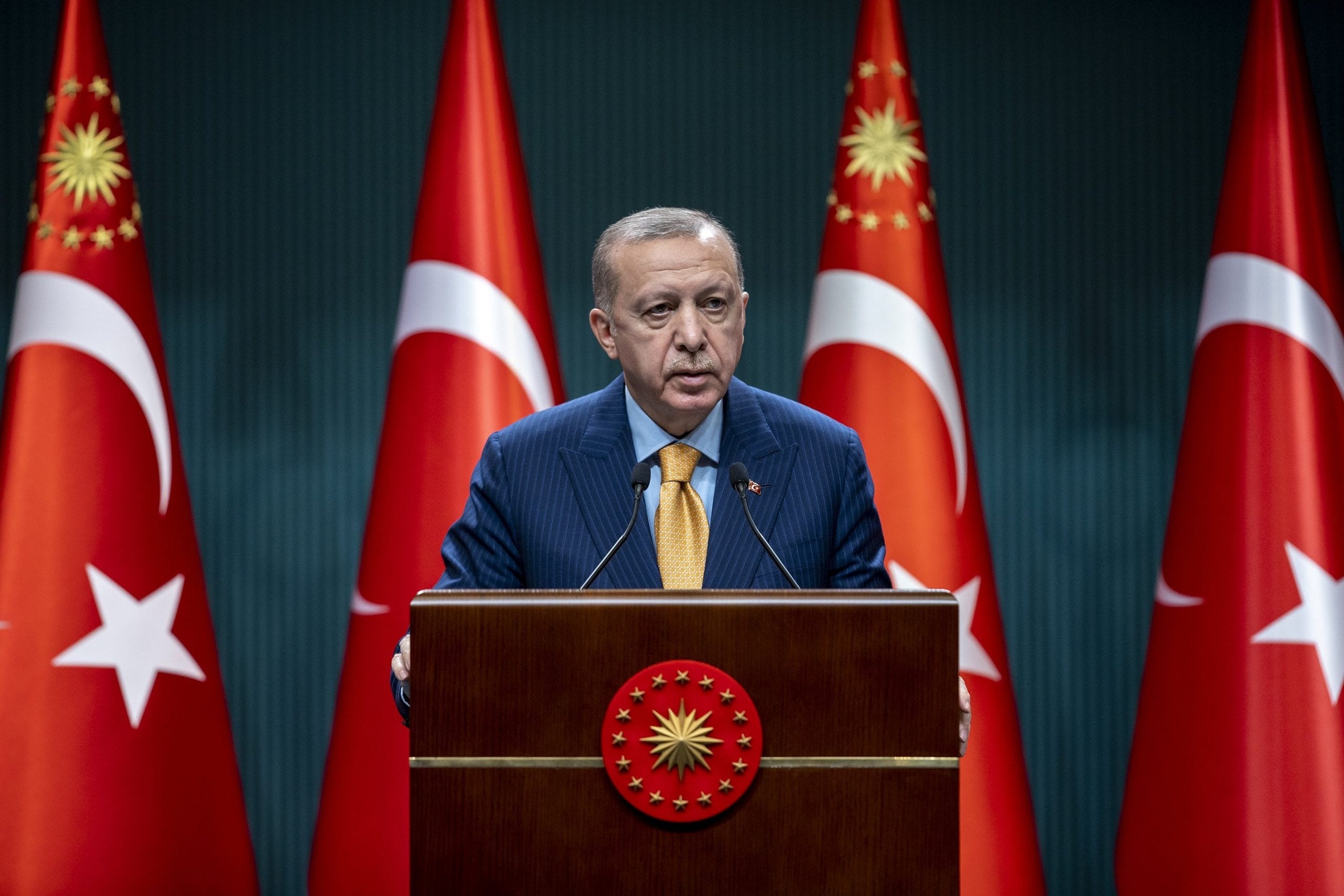Weekend curfews, introduced as part of coronavirus measures, will be lifted gradually on a provincial basis, President Recep Tayyip Erdoğan said late Wednesday in Ankara’s Presidential Complex after a cabinet meeting.
“The roadmap for the opening of restaurants and cafes will be revealed next week,” he added, underlining that Turkey will start to move toward normalization.
“Gradual normalization period in virus restrictions will be launched early March,” Erdoğan emphasized, adding that the authorities will divide provinces into four categories based on infection rates and the vaccination process.
“Short-term employment allowance is extended for the last time until the end of March,” he also said.
The president also emphasized the strength of the Turkish economy during the pandemic. “When the pandemic started, IMF predicted that Turkish economy would shrink by 5%,” he said.
“But it later had to revise its forecast, saying Turkey will grow by 1.2%.”
With nationwide partial lockdowns still in place, Turkey looks to the next phase of its fight against the coronavirus outbreak and has also previously announced that it could ease or tighten restrictions. As Health Minister Fahrettin Koca announced on Feb. 10, in this new phase entitled “Decision on the Ground,” the public health boards of the country’s 81 provinces will make the decision on whether to loosen or buckle-down on restrictions.
In line with the new process, the Health Ministry has begun to release the weekly average number of cases in each province as of Monday. Citizens will be able to see the risk the outbreak poses up close. A smartphone app by the ministry already gives access to “risk maps” for each neighborhood, but the overall number of cases for provinces have not been shared with the public so far, other than vague rates of cases for big cities like Istanbul announced from time to time by the ministry.
Public health boards coordinated by provincial governorates will be allowed to ease or step up restrictions and their scope based on the prevalence of the outbreak in each province, something that been done last year that proved successful. Nevertheless, a sudden surge in cases across the country forced authorities to impose new nationwide measures in November. Those ignoring the rules set in place to counter the outbreak are complicit in the surge. Currently, there is a standing weeknight curfew at 9 p.m. nationwide and weekend lockdowns that begin on Friday night and last until the early hours of Monday with citizens only allowed to leave the house to buy essentials.
In its fight against the outbreak, which made its foray into the country in March, Turkey plans to segue into the “new normal” in which measures like mask-wearing and social distancing will likely remain intact but limitations to social life will be lifted. A vaccination campaign kicked off last month, instilling hope among its citizens, but authorities warn that the vaccination does not mean a quick end to the outbreak and have called on the public not to lower their guard.

